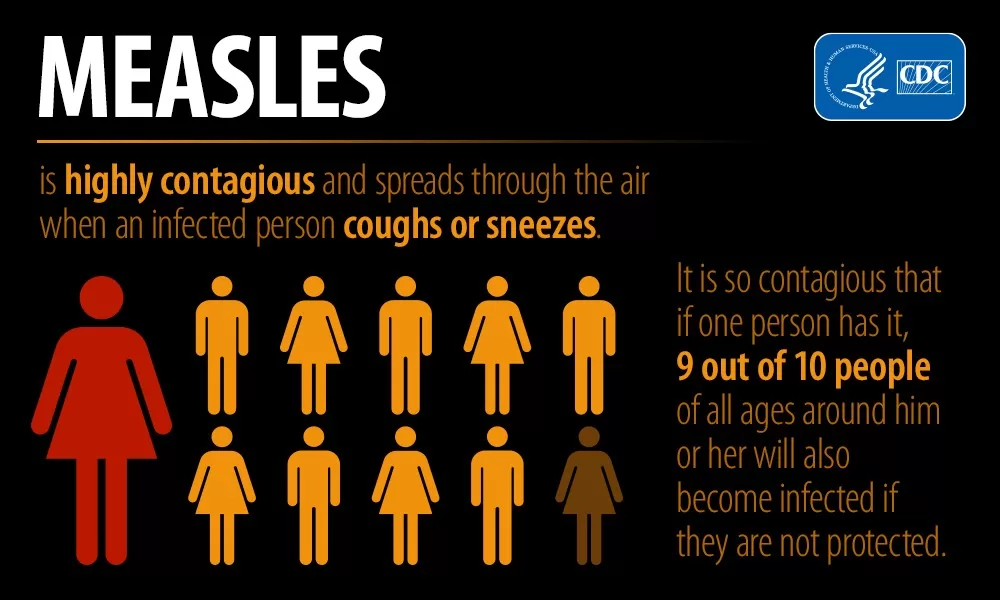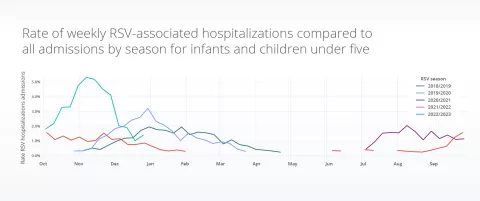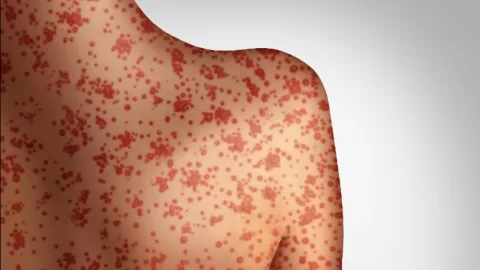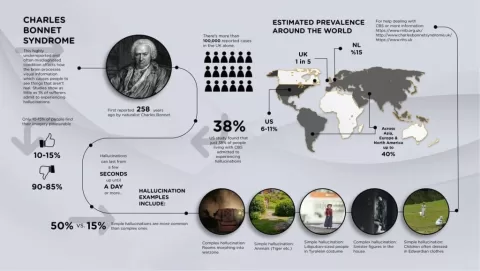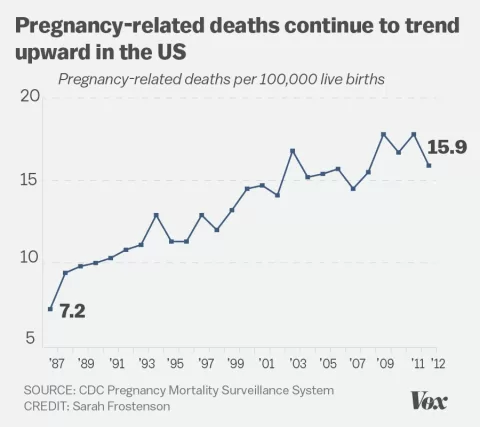The long-term health risks of measles extend far beyond the immediate symptoms of fever and rash, presenting serious complications that can impair health for years after infection. Medical experts have identified several dire consequences, including immune amnesia, which effectively erases the body’s long-term immunity to other diseases. During a recent measles outbreak in Texas, more than 540 cases have emphasized the urgency of addressing these substantial risks, particularly for unvaccinated children. Left unchecked, measles can also lead to brain swelling, hearing loss, and various other measles-associated diseases. With the importance of the measles vaccine now clearer than ever, it’s crucial to educate communities about the potentially devastating lifelong effects of this preventable illness.
When discussing the repercussions of measles, it’s essential to consider the profound health challenges that can linger long after the initial infection has subsided. This viral illness is not just an inconvenience; it can trigger severe complications such as cognitive impairments and sensory deficits, underscoring the pivotal role of immunization. The phenomenon known as immune amnesia can leave affected individuals vulnerable to other infections, challenging their overall well-being. Recent measles outbreaks have magnified the risks associated with the disease, highlighting the critical need for public understanding of the gravity of measles complications. Thus, emphasizing the value of vaccination is vital to curtailing these realities and protecting public health.
Understanding Long-Term Health Risks of Measles
The long-term health risks associated with measles are profound and alarming. Among these risks is immune amnesia, a condition where the immune system loses its memory of prior infections, rendering individuals vulnerable to various pathogens long after recovering from measles. This phenomenon is particularly troubling among unvaccinated children, as studies indicate that measles infection can decrease antibody production against other diseases by a staggering 11% to 73%. As a result, children who survive measles may find themselves at an increased risk for severe infections from ailments such as Streptococcus and Haemophilus influenzae type b, which pose significant dangers to young children.
Furthermore, medical experts stress that measles infections can lead to various complications that extend beyond the initial illness. For example, serious conditions such as encephalitis and subacute sclerosing panencephalitis can develop, leading to irreversible damage to the brain. This highlights the importance of measles vaccination, as it serves not only to prevent the immediate effects of the virus but also to protect against these long-term consequences that can drastically affect overall health.
The Importance of Vaccination in Preventing Measles Complications
Vaccination remains the most effective method for preventing measles and its severe complications. The measles, mumps, and rubella (MMR) vaccine provides over 95% protection against measles, significantly reducing the likelihood of infection and its associated health risks. Before the introduction of the measles vaccine, annual death tolls from the disease reached approximately 400 to 500 in the United States alone. This stark reality underscores the critical role vaccines play in safeguarding public health and preventing outbreaks like the one currently facing Texas.
Additionally, vaccinating children not only protects them as individuals but also contributes to herd immunity, which is essential for preventing the spread of diseases in the community. By ensuring a high vaccination rate, we reduce the overall risk of outbreaks, thereby protecting those who cannot be vaccinated due to health reasons. The CDC recommends that children receive two doses of the MMR vaccine—one between 12 and 15 months and another between four and six years—to maximize immunity and minimize the risk of complications associated with measles.
Complications Following Measles Infection: Encephalitis and More
One of the most severe complications associated with measles is encephalitis, an inflammation of the brain that can occur in approximately one in 1,000 cases. This condition poses a significant risk, with a high mortality rate and the potential for lasting neurological damage even among those who survive. The aftermath of encephalitis can include seizures, cognitive difficulties, and motor disabilities, which can profoundly impact a child’s quality of life. Medical professionals emphasize the importance of recognizing these risks, as the complications of measles often extend well beyond the initial symptoms.
Moreover, other significant complications from measles can include hearing loss and pneumonia. Hearing loss can occur due to direct damage from the virus or secondary bacterial infections like ear infections, which are common in children who contract measles. Pneumonia, affecting about one in twenty children, remains a leading cause of measles-related deaths. Such complications highlight the necessity for vaccines; preventing measles is not only crucial for individual health but also for preventing the systemic burden of these associated diseases.
Immune System Risks: The Threat of Immune Amnesia
Immune amnesia is a concerning consequence of measles infection, representing a loss of immune memory that compromises the body’s ability to effectively combat other infections. The measles virus has a devastating impact on the immune system, effectively erasing the antibodies that children have developed against various pathogens over their lifetimes. Recovery from measles does not restore this immune memory instantly; it can take several years for the immune system to rebuild its defenses.
This prolonged vulnerability can lead to severe infections from both common and rare pathogens, particularly affecting children under five. Hence, getting vaccinated against measles not only protects against the disease itself but also plays a crucial role in preserving a child’s immune memory. By mediating these risks, vaccinations serve as a public health strategy to prevent the long-term repercussions of measles and ensure a healthier future generation.
Addressing the Risk of Hearing Loss and Eye Damage
Measles can cause devastating complications such as hearing loss and vision impairment, which often go unnoticed until they have caused significant harm. These complications arise from both direct viral effects on the body and secondary infections that are more prevalent during measles outbreaks. Hearing loss is prevalent in children who develop bacterial ear infections following measles, with statistics showing that up to one in ten infected children may experience this complication.
In terms of vision, measles can affect the cornea, leading to permanent damage and potential blindness. Vitamin A deficiency, a known risk factor exacerbated by measles, plays a critical role here. This vitamin is crucial for maintaining eye health, and its depletion can have profound effects. Thus, the importance of vaccination extends beyond immediate protection; it also ensures that children maintain their overall health, thereby preserving their hearing and vision throughout their lives.
Pneumonia and Lung Complications: A Major Health Concern
Pneumonia is one of the most dangerous complications that can arise from measles infection, with about one in twenty children developing this severe respiratory condition. This ailment is particularly hazardous, as it can be fatal if not treated promptly. The inflammation caused by measles can lead to lasting lung damage that may manifest as chronic breathing difficulties. Conditions such as bronchiectasis can arise, which results in permanent damage to the airways and long-term respiratory issues.
Additionally, pneumonia caused by measles can compromise a child’s overall health, providing a gateway for further infections and complications. Emphasizing the importance of measles vaccination among children helps to prevent pneumonia and its associated risks, thereby safeguarding lung health and ensuring the well-being of the younger population.
The Rising Concern of Measles Outbreaks in Communities
Recent trends have shown a worrying increase in measles outbreaks, particularly in areas with lower vaccination rates. The current outbreak in Texas highlights the cascading effects of vaccine hesitancy and misinformation. With over 540 cases confirmed and multiple hospitalizations, the urgency for community engagement on vaccination is more crucial than ever. As parents and guardians debate the safety and efficacy of vaccines, health experts reiterate that vaccination is the most effective defense against outbreaks and associated health risks.
Communities with reduced vaccination coverage face a ripple effect, where the risk of outbreaks escalates, placing vulnerable populations, including infants and those who cannot be vaccinated, at increased risk. Public health campaigns promoting vaccination can not only help to mitigate current outbreaks but also prevent potential future crises, as history shows that measles can quickly spread in unvaccinated populations.
Long-Term Impacts of Measles: A Call to Action
The long-term health impacts of measles are alarming, compelling both medical professionals and the public to take decisive action. The lasting effects of immune amnesia, brain swelling, and impaired hearing or vision can significantly alter a child’s future health trajectory. These risks underscore the urgent need for comprehensive vaccination strategies to prevent measles and protect future generations from complications that extend far beyond the acute infection.
Educating families about the dangers of measles and the critical importance of immunization is essential. As outbreaks continue to challenge public health, we must emphasize the role of vaccinations in preventing not only measles but also its severe and potentially fatal long-term consequences. This is not just a personal health issue; it’s a public health imperative.
Community Health Initiatives to Mitigate Measles Risks
Community health initiatives play a pivotal role in addressing the risks associated with measles. Effective outreach programs that promote vaccination can help dispel myths and misinformation regarding the measles vaccine. By providing accurate information about the effectiveness and safety of vaccines, communities can increase vaccination rates and reduce the incidence of measles outbreaks, ultimately protecting the health of everyone, especially vulnerable populations.
Moreover, partnerships with schools, healthcare providers, and public health agencies can further amplify these efforts. School-based vaccination programs and educational workshops can help ensure that children receive their recommended vaccinations on time. By strategically implementing community health initiatives, we can create a safer and healthier environment, reducing the long-term health risks associated with measles.
Frequently Asked Questions
What are the long-term health risks of measles infection?
Long-term health risks of measles include immune amnesia, which diminishes the body’s ability to remember previous infections, and serious complications such as brain swelling and hearing loss. These complications can arise even after recovery from the initial illness.
How does immune amnesia relate to long-term health risks of measles?
Immune amnesia, a significant long-term health risk of measles, occurs when the virus destroys immune cells responsible for remembering past infections, leaving individuals, especially unvaccinated children, vulnerable to other diseases for years after recovery.
What complications can arise from a measles outbreak?
A measles outbreak can lead to severe complications, such as encephalitis, which causes brain swelling, and increased rates of pneumonia, leading to lung damage. These complications underscore the importance of measles vaccination to prevent outbreaks and associated health risks.
Why is the measles vaccine important for preventing long-term health complications?
The measles vaccine is crucial for preventing long-term health complications, such as immune amnesia and encephalitis. Vaccination offers over 95% protection against measles and its associated risks, ensuring individuals maintain their immune health and minimize severe outcomes.
Can measles lead to hearing loss and vision problems long after recovery?
Yes, measles can lead to hearing loss and vision problems long after recovery due to complications such as encephalitis, which can damage neural pathways. Infections like ear infections, common after measles, can further contribute to these long-term health risks.
What is the connection between measles and lung damage?
Measles can cause pneumonia in about one in twenty children, which is a primary cause of measles-related deaths. Additionally, lung inflammation can result in persistent lung damage, including conditions like bronchiectasis and interstitial pneumonitis.
How does the measles virus affect the brain long-term?
The measles virus can cause acute encephalitis, leading to brain swelling. Even if patients recover, they may face long-term health issues such as seizures, developmental delays, and in rare cases, progressive conditions like subacute sclerosing panencephalitis, which develop years later.
What role does vitamin A play in the long-term health risks of measles?
Vitamin A is essential for maintaining eye health, and measles can deplete a child’s vitamin A reserves, leading to potential vision loss. This highlights the importance of nutrition alongside vaccination to mitigate long-term health risks associated with measles.
What are common measles-associated diseases after infection?
Common measles-associated diseases following infection can include pneumonia, encephalitis, hearing loss, and immune amnesia, which makes affected individuals more susceptible to other infections, especially in unvaccinated children.
How effective is the measles vaccine in preventing long-term risks?
The measles vaccine is over 95% effective in preventing measles and its long-term health risks, including immune amnesia and serious neurological complications, making vaccination a critical public health measure.
| Long-term Health Risks of Measles | Description | Statistics | |
|---|---|---|---|
| Immune Amnesia | Measles can erase the body’s immune memory, making individuals vulnerable to infections for years after recovery. | ||
| Encephalitis | 1 in 1,000 cases can lead to acute encephalitis, with a 15% mortality rate and a 25% risk of lasting health issues. | ||
| Hearing Loss | 1 in 10 children infected with measles develop ear infections, which can lead to hearing loss. | ||
| Vision Loss | The virus can infect the cornea leading to irritation and permanent vision loss. | ||
| Lung Damage | 1 in 20 children develop pneumonia, potentially leading to lasting lung damage. | ||
| Subacute Sclerosing Panencephalitis | A rare and progressive form of encephalitis that may develop years after recovery, often fatal. | ||
Summary
The long-term health risks of measles are significant and concerning. Measles is not merely a viral illness with temporary symptoms; the potential long-lasting effects can have devastating consequences, including immune amnesia, brain swelling, and hearing and vision loss. Medical experts emphasize that complications can arise long after recovery, highlighting the critical importance of vaccination. Protecting against measles through vaccination not only safeguards individuals but also shields communities from outbreaks, where the ramifications can lead to serious health outcomes.
The content provided on this blog (e.g., symptom descriptions, health tips, or general advice) is for informational purposes only and is not a substitute for professional medical advice, diagnosis, or treatment. Always seek the guidance of your physician or other qualified healthcare provider with any questions you may have regarding a medical condition. Never disregard professional medical advice or delay seeking it because of something you have read on this website. If you believe you may have a medical emergency, call your doctor or emergency services immediately. Reliance on any information provided by this blog is solely at your own risk.



